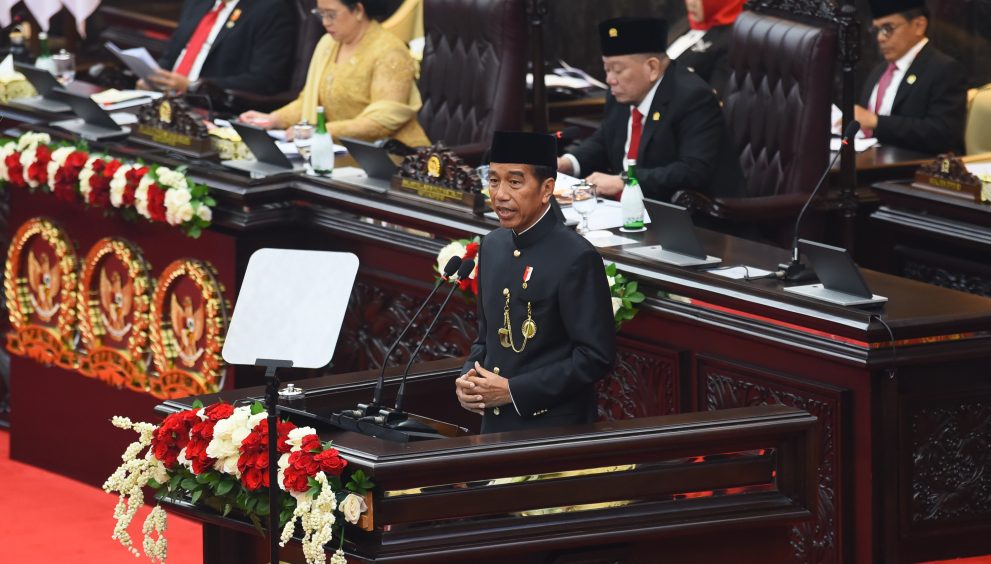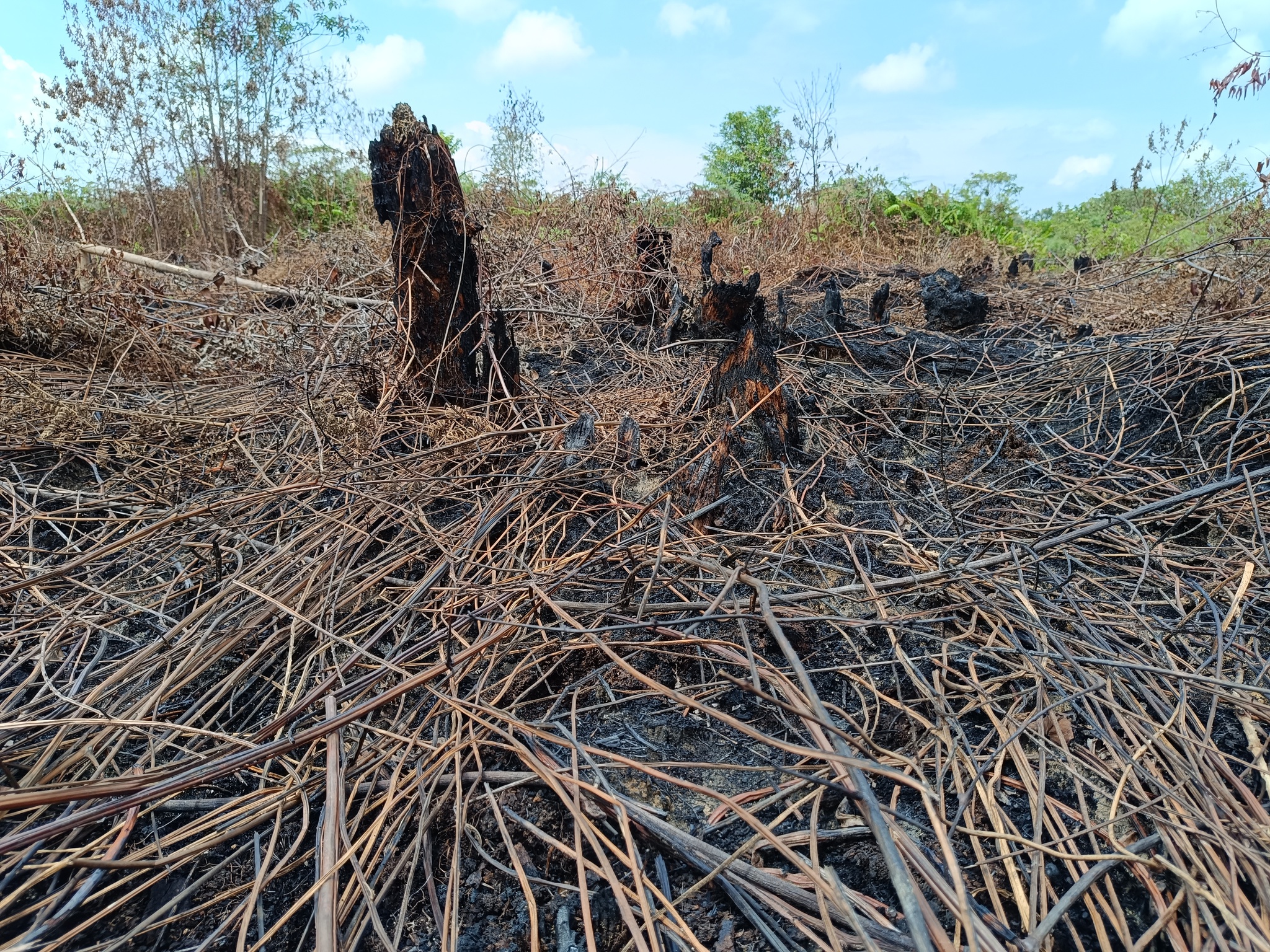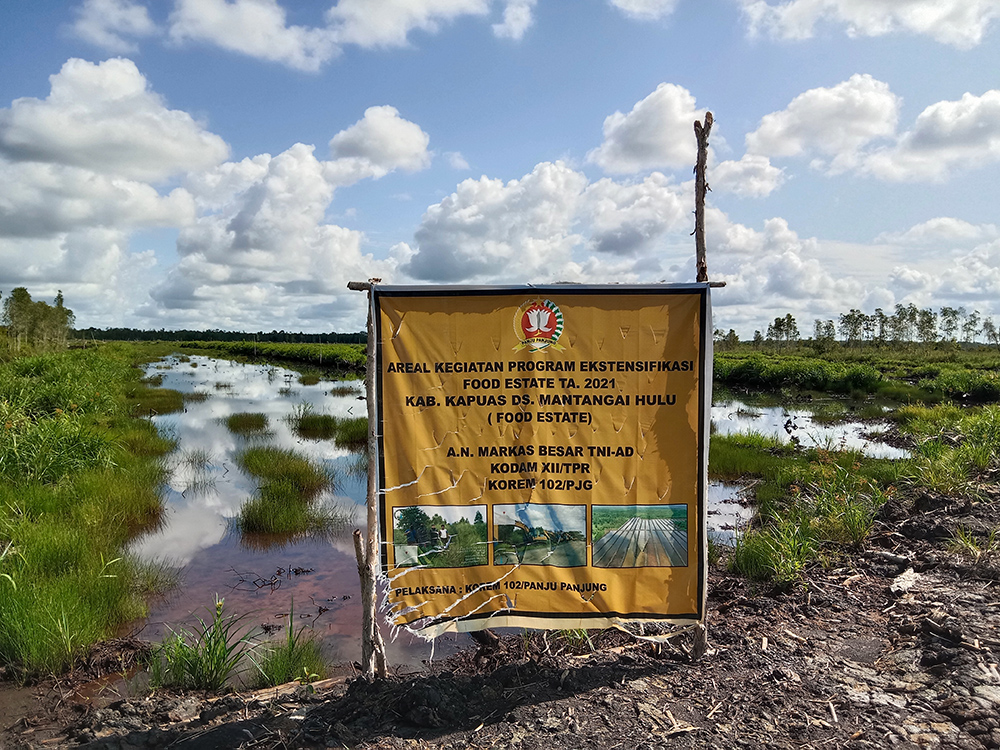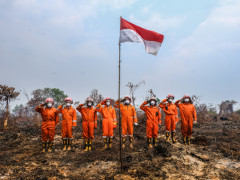Field of False
By Juma Maulana, Abil Salsabila, Agiel Prakoso, Johan Wahyu Robiya, Wahyu Perdana, Almi Ramadhi, Yoga Aprillianno, Iola AbasSuperior on the Stage, Inferior in the Field

Pantau Gambut identified three key points from the speech that ended up as antitheses: 1) resilience in facing climate change, 2) National Strategic Projects (PSN) that are supposedly improving domestic food productivity, and 3) restorative justice.
These three points were drawn from the State of the Nation Address at the Annual Session of the People’s Consultative Assembly (MPR) and the Joint Session of the House of Representatives (DPR) and the Regional Representative Council (DPD) at the Nusantara Building, Jakarta, on August 16, 2024. Confidently, Jokowi outlined various government achievements across multiple aspects. However, the reverse formula was evident.
The first of Jokowi's statements to contrast reality is Indonesia’s supposed resilience in dealing with climate change. In reality, Indonesia is increasingly distancing itself from efforts to limit global warming to 1.5 degrees Celsius, as committed under the Paris Agreement. Wahyu Perdana, Campaign and Advocacy Manager of Pantau Gambut, stated, “Exceeding the livable global temperature threshold while allowing forest and land fires to continue is certainly not resilience in facing climate change.”
Throughout Jokowi’s administration, Indonesia has continuously been plagued by forest and land fires. Two major fires occurred during his presidency. Data compiled from the Ministry of Environment and Forestry (KLHK) shows that 1.3 million hectares of peatland Hydrological Unit (HGU) were burned in 2015. Meanwhile, the second major fire in 2019 destroyed 735,718 hectares of HGU. In 2023, Pantau Gambut identified 524,869 hectares of indicative forest and land fires in HGU areas, a number nearly eight times the size of Jakarta Province. Most recently, 2,023 of the 6,284 hotspots recorded by July 2024 occurred on company-owned land spread across 229 HGU areas.

The reverse formula also applies to PSN’s claim to increase domestic food productivity. The National Food Supply Enhancement Program, based on the Food Estate, has become a source of conflict rather than serving the people’s interests. One of the most prominent examples is the Food Estate program in Central Kalimantan. Obsessed with pursuing large-scale projects, the government is repeating past mistakes by expanding in the former one-million-hectare Peatland Development (PLG) area for large-scale rice, cassava, and corn cultivation.
The implementation of this program completely disregards local food knowledge and lacks public participation. Not only are unsuitable plant seeds being "forced" into the land, but land grabbing from local residents is rampant. According to Pantau Gambut's analysis of KLHK data, 91,352 hectares of land were burned in the ex-PLG area in 2023—approaching the 153,193 hectares burned in the same area during the 2019 El-Nino. These areas, which should be restored, have instead been co-opted into the Food Estate project.

The president also boasted about strengthening restorative justice, which in practice has been misused to pardon environmental offenders. Wahyu remarked, “This practice oversimplifies the concept of legal accountability.” This can be seen in the amnesty granted to 3.3 million hectares of palm oil plantations within forest areas, facilitated by Articles 110a and 110b of the Omnibus Law (UU Cipta Kerja). An area that was once illegal has now been legalized as plantations under Article 92 of Law Number 18 of 2013 concerning the Prevention and Eradication of Forest Destruction.
These illegal activities should have resulted in criminal penalties for the companies. However, companies only face administrative sanctions due to the application of the ultimum remidium principle in the Omnibus Law. This principle prioritizes administrative sanctions over criminal penalties. Wahyu added, “Administrative sanctions should not automatically absolve corporations of criminal responsibility for operating illegally within forest areas.”
Independence is not just an expensive ceremony; Indonesia must also truly liberate itself from environmental destroyers. While loving Indonesia is not easy, we do love our environment. Nature, which should belong to all Indonesians, is for all of us—not just a privileged few. Happy birthday, Indonesia!



